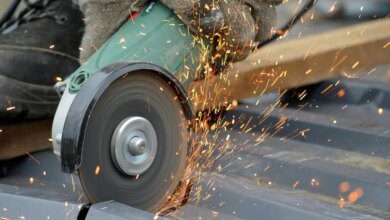
What you need to know before buying an apartment
Buying a house is not as easy as it seems. Many people dream of having their own comfortable home, but the entire buying and selling process requires careful planning and analysis.
If you are going to buy an apartment, it is important to decide whether you want a house in the old quarter or in a new area. Many expanding cities have built buildings that attract young families, but before you make a purchase, you should check to see if you have your eye on a neighborhood with potential seismic hazards that were high before 1977. It would also be a good idea to find out if the developer's company has debts, is insolvent, or is hiding problems related to utilities that could cause you inconvenience and additional costs.
The content of the article
Choose a serious developer
Should your dream home be in a newly built building? Then you should rely only on reputable builders and developers with a large portfolio of projects. The developer company can also be checked in the Trade Register to ensure there are no debts or other problems. Experienced ones have systems and procedures in place to ensure apartments are completed and delivered to owners on time. Secondly, a reputable developer is not afraid to show you documentation for the property or tell you which partner companies he works with. Review the building documents carefully, perhaps with your architect or civil engineer. The detailed city plan also contains data on connections to utility networks.
Tip
A reliable developer accepts multiple payment methods.
Check the area where the house is located
When you want to buy an apartment, it is important to choose a location where you have easy access to kindergartens, schools, hospitals, recreation areas, supermarkets, shopping centers, depending on your personal long-term interests, and not just in the immediate future. Additionally, the location of an apartment affects not only its market value, but also the standard of living you can expect there. In terms of market unpredictability, housing located in extended residential areas provides a high level of protection. However, the infrastructure surrounding the area and access to transportation must be taken into account. Find out what amenities they offer: parking spaces, possibly electric car stations, bike racks. If you want an apartment in a residential area, it is also of interest to have convenient access to a medical center, kindergarten, school, parks, and sports grounds. Can I talk to my neighbors? Ask them about hot water supply, sewer and maintenance costs, especially the type of heating system used, as well as how safe they think the area is, whether there is an intercom or other security system in the building or area, and whether problems in case of heavy rain or snow.
Rate the build quality
You should also check the quality of construction. Find out what year the building was built, what its seismic risk is, what building materials were used, what its resistance design is, and whether the exterior masonry is insulating and possibly fire resistant. Ask a technical consultant, engineer or designer for advice. Also, if possible, request a town planning certificate, a building permit, an acceptance certificate, an extract from the land deed.
He appreciates the availability of utilities
With water shortages and frequent power cuts in the area, even a luxurious, well-appointed apartment will not be able to offer you the comfort you desire. Some of the main aspects you will need to look into are: connection to the water and sewer system, connection to the area's electrical system, and connection to the natural gas distribution system. In some areas, the electricity connection may be temporary, especially if you are buying an apartment that is still under construction. Make sure everything is in order before purchasing!
@shutterstock













